The 10 key principles of the Mediterranean diet – and how to bring them into your kitchen
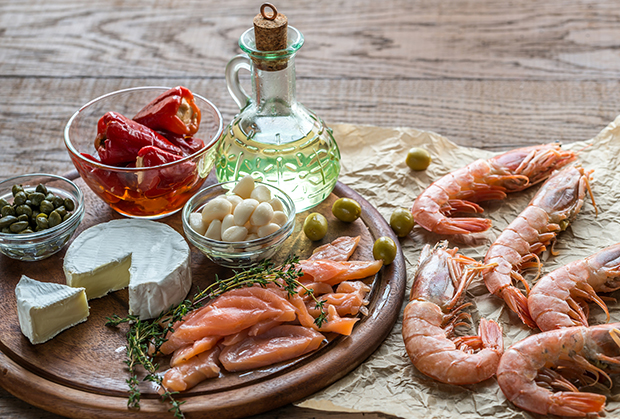
The ins-and-outs of one of the most popular culinary lifestyles in the world.
Words: Extracted from Modern Mediterranean Diet by Dr Catherine Itsiopoulos & Vivienne Koutsis
The traditional Mediterranean diet is a cuisine and way of life that dates back to antiquity. Over the past few decades the scientific evidence on the benefits of a Mediterranean diet has grown exponentially.
One could argue that there are as many diets as there are countries surrounding the Mediterranean, and not all of them are necessarily healthy. It is important to highlight here that the bulk of the research on the health benefits is based on the traditional Mediterranean diet of the people of the Greek island of Crete in the 1950s, which was studied extensively by American physiologist Ancel Keys and his co-workers. For many years they monitored and examined the link between the diet and health of populations in seven countries throughout northern and southern Europe, Japan and the USA. Their findings were surprising: those living on the island of Crete had almost no deaths from heart disease, and this ‘protection’ from the disease was attributed to their plant-based diet rich in extra-virgin olive oil. Conversely, those living in northern Europe, with diets rich in animal fats and low in plant foods, had high rates of heart-disease related deaths.
The traditional Mediterranean diet and lifestyle features:
• daily consumption of fresh vegetables, fruit, nuts and seeds
• grain products (bread, pasta, rice)
• eating legumes at least twice a week
• cold-pressed extra-virgin olive oil for cooking and the main source of fat
• herbs and spices to add flavour to food
• fresh fruit daily and less consumption of sweets, cakes and dairy desserts
• fish and seafood two to three times weekly
• daily consumption of dairy, particularly yoghurt (small portions of cheese eaten less frequently)
• eggs as a source of high-quality protein, two to four times weekly
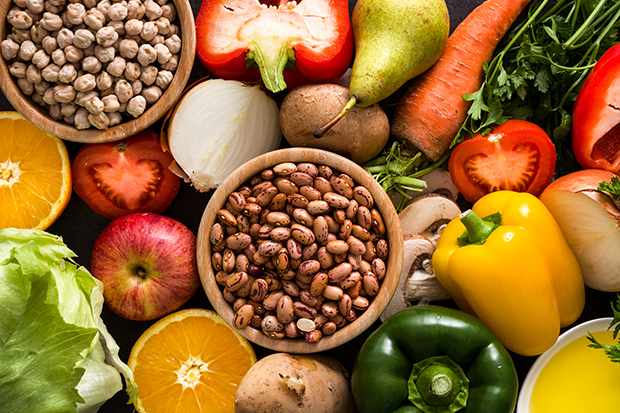
• infrequent consumption of red or processed meat, in small portions (one to two times per month)
• water as the main beverage
• drinking only moderate amounts of wine, always with meals (1 drink per day or less for women; 1–2 per day or less for men)
• preferring fresh, locally produced foods that have been minimally processed
• connection with and respect for nature
• flavoursome cooking
• moderate portion sizes
• moderate physical activity every day
• preparing and consuming meals in the company of other people
• having an appropriate rest every day
MORE THAN JUST A WAY OF EATING
The health benefits of this dietary pattern extend to important lifestyle and cultural factors, such as methods of growing, harvesting, processing and cooking food, as well as sharing meals and eating together. These important lifestyle factors led UNESCO in 2010 to include the Mediterranean diet on the list of the Intangible Cultural Heritage of Humanity.
The 10 Key Principles of the Modern Mediterranean Diet
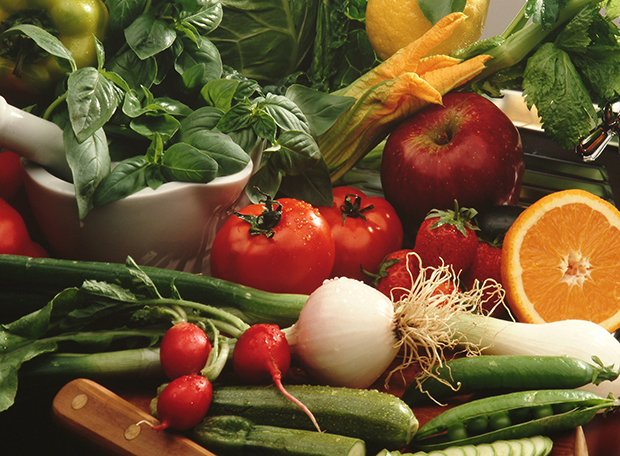
The Mediterranean diet is a cuisine and a way of life, not a fad diet promising unrealistic weight loss or health benefits in one week. Adopting a Mediterranean-style diet does not have to involve complex, time-consuming dishes such as moussaka and stuffed vegetables every day. These key principles are easily adopted into everyday diets and even a few of the changes will make a big difference to your health and wellbeing.
1. Use extra-virgin olive oil in place of other oils in cooking and on salads.
2. Make vegetables the hero of your meal. Be sure to include bright, leafy greens and tomatoes.
3. Flavour your dishes with fresh and dried herbs and spices, and citrus juice from lemons and limes in salad dressings.
4. Plant proteins from legumes should feature at least twice per week in place of meat proteins, and daily if you are vegetarian.
5. Include sustainably caught fish and seafood, such as sardines and mussels, a few times per week.
6. Red meat and processed meats should be consumed sparingly with a preference for white meats (chicken) and game meats.
7. Prefer wholegrain sourdough breads (or gluten-free options) for mopping up juices from casseroles and salads.
8. Consume fresh fruit daily as a snack between meals or toss through salads for natural sweetness.
9. Enjoy fermented dairy foods on a daily basis, such as yoghurt, feta cheese or dairy-free alternatives.
10. Snack on a handful of nuts and seeds daily in between meals and toss them through salads for extra protein and texture.
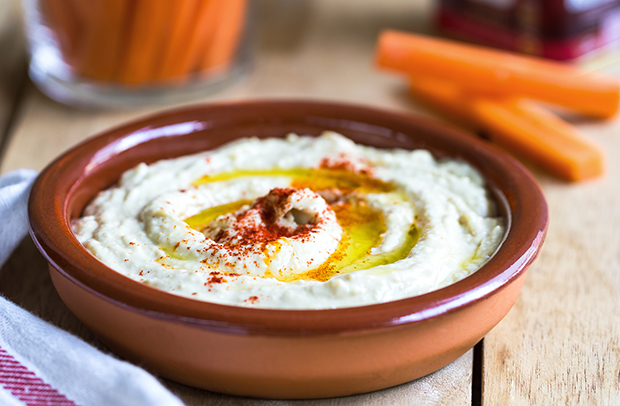
Indulgences like wine* (preferably red) and sweets should be consumed in moderation.
* Health authorities recommend that men and women should drink no more than 10 standard drinks a week and no more than 4 standard drinks on any one day to reduce the risk of harm from alcohol-related disease or injury.
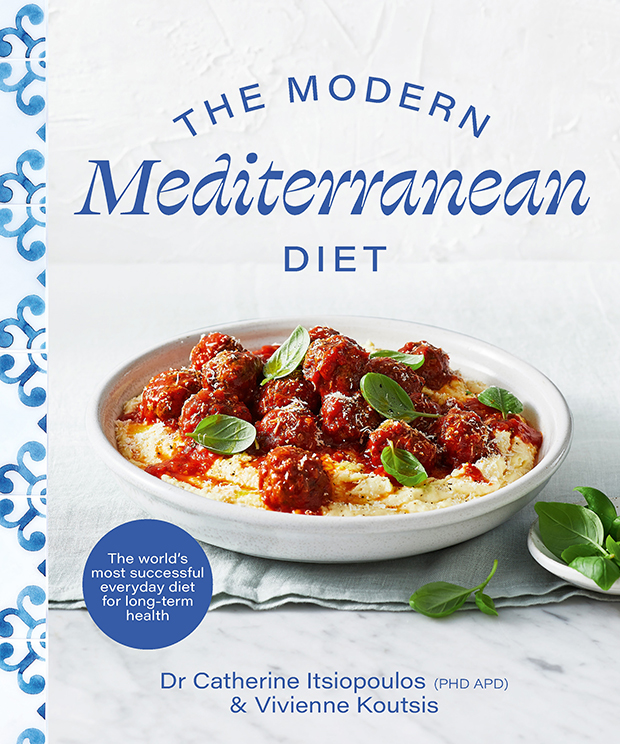
Text extracted from: Modern Mediterranean Diet by Dr Catherine Itsiopoulos & Vivienne Koutsis, Macmillan, RRP $44.99.


